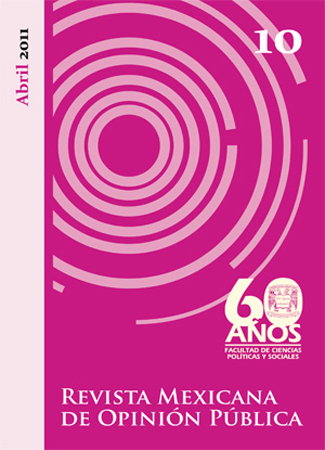The Choice of Brazil, 2010: Public Opinion and Communication
Main Article Content
Abstract
In 2010, Dilma Rousseff, cadidate of the Workers Party (PT), was the winner of presidential elections. President Lula’s popularity and mass media were two of the most important factor that determined the electoral result. This article analyzes the reasons that Brazilian citizens had to vote, taking as reference public opinion’s concept developed by Giovanni Sartori.
The author affirms that electoral decisions are not only explained by the influence of images and vain promises of candidates; proving that things such as identity, social and cultural characteristics of electoral segments acquired a big importance in the Brazilian electoral process. The purpose of this article is to set how 2010 presidential elections in Brazil is articulated to a group of communicative forms and schemes that pretend to establish how PT’s candidate is a Lula’s continuity and how Serra, his opponent even when he doesn’t try to deny PT government, sets out to do a better one.
Article Details
Citas en Dimensions Service

Revista Mexicana de Opinión Pública por Universidad Nacional Autónoma de México se distribuye bajo una Licencia Creative Commons Atribución-NoComercial-SinDerivar 4.0 Internacional.
Basada en una obra en http://revistas.unam.mx/index.php/rmop.
